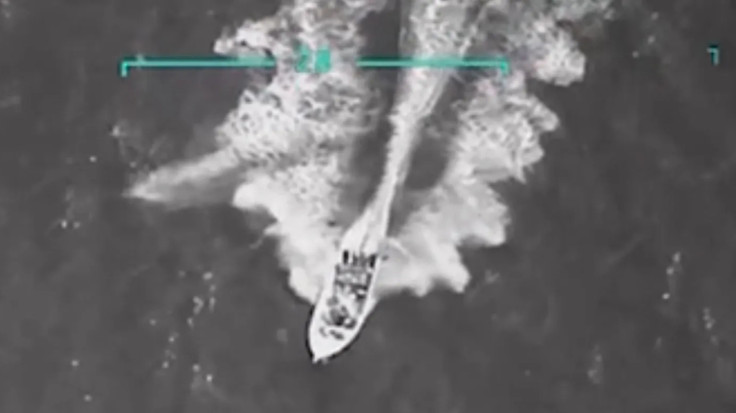
Alleged drug boats targeted by the Trump administration in the Caribbean are likely seeking to smuggle cocaine into Europe and not fentanyl in the United States, according to a new report.
NBC News cited experts who claimed that fentanyl is almost exclusively smuggled through land via Mexico, rather than through boats in the Caribbean. The outlet interviewed former U.S. law enforcement and military officials, as well as experts on narcotics.
"Fentanyl is not coming out of Venezuela. Fentanyl comes from Mexico," Christopher Hernandez-Roy, a senior fellow at the Center for Strategic and International Studies think tank in Washington, told the outlet.
However, he said, most of that cocaine does not go to the U.S., especially considering the market in Europe has "exploded" lately because it is "more lucrative and there's less of a chance, at least at some levels of the supply chain, of facing prison time."
Pentagon spokesman Sean Parnell rejected the premise, claiming that "our intelligence did indeed confirm these boats were trafficking narcotics destined for America." "That same intelligence also confirms that the individuals involved in these drug operations were narco-terrorists, and we stand by that assessment," he added.
Top U.S. officials have recently offered contrasting assessments of the way in which strikes are impacting the drug trade in the country.
On the one hand, Drug Enforcement Administration (DEA) Administrator Terry Cole said cocaine prices in the U.S. are increasing.
"Cocaine is getting more expensive. And I think what it is — not only more expensive in the U.S., but we're seeing it become more expensive at first stops. So more expensive in Puerto Rico, more expensive in the Dominican, more expensive once it lands in Guatemala and Honduras and Central America," Cole told CBS News.
He went on to specify that cocaine prices have increased between 30% and 45% per kilogram. "It's now more expensive to recruit boat captains, it's more expensive to purchase engines, it's more expensive to build larger boats for transportation," Cole added, noting it is all a result of "immense pressure."
However, Nathan Moore, the commander of Coast Guard Atlantic Area, said the force has not seen "any noticeable difference" in the flow of cocaine in the region.
He made the claim after the Coast Guard seized almost 50,000 pounds of cocaine, which have a street value of more than $360 million. It was the "most cocaine ever seized by a single cutter in one deployment, so business is good," Moore said.
Moore also told the outlet that there have not been major changes in routes or pace in the region, or in drug purity, despite the strikes.
© 2025 Latin Times. All rights reserved. Do not reproduce without permission.




